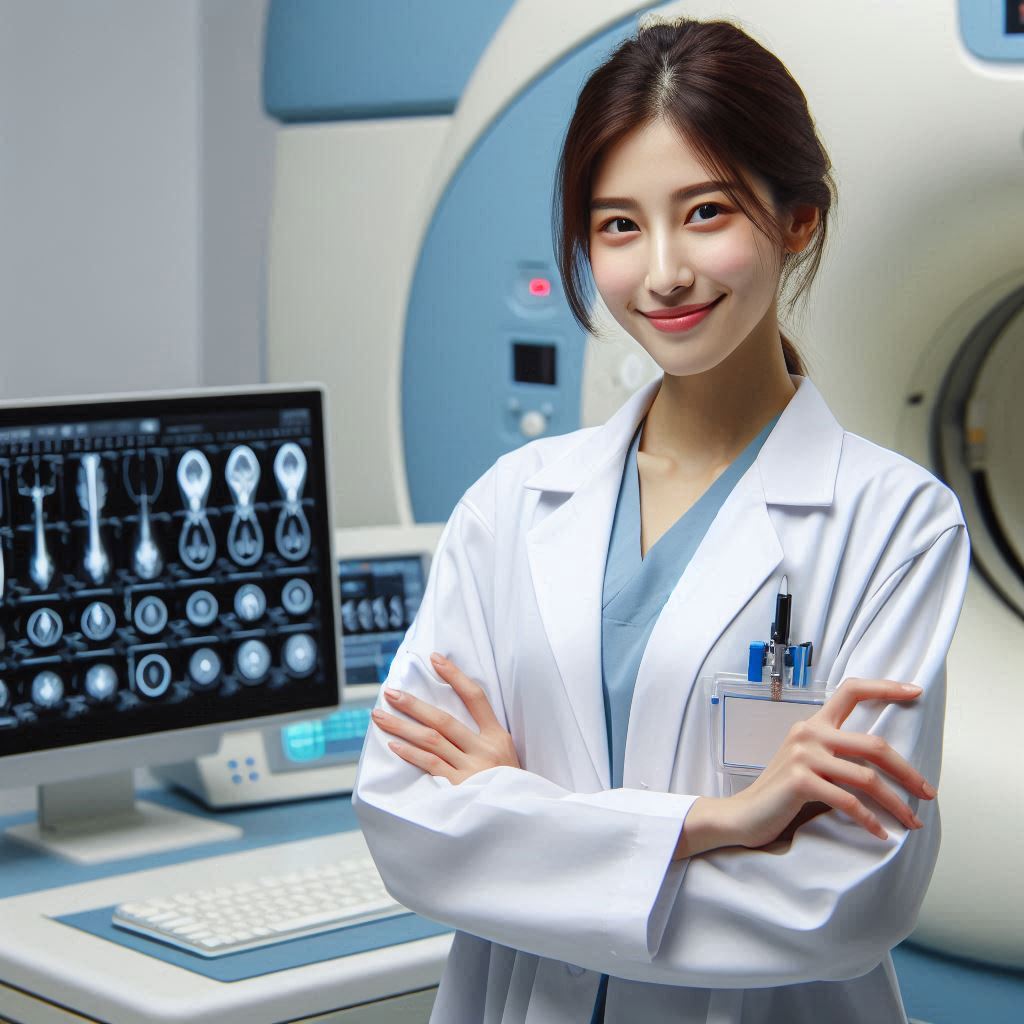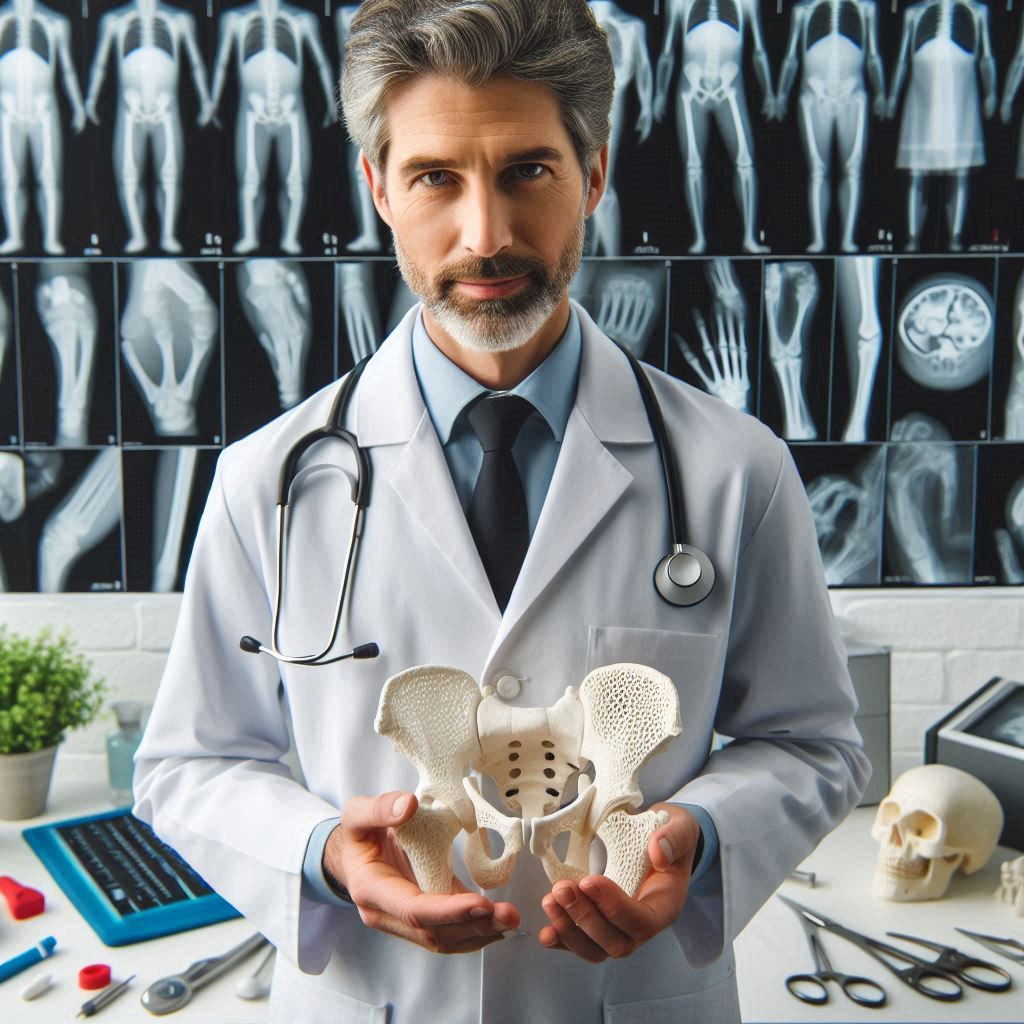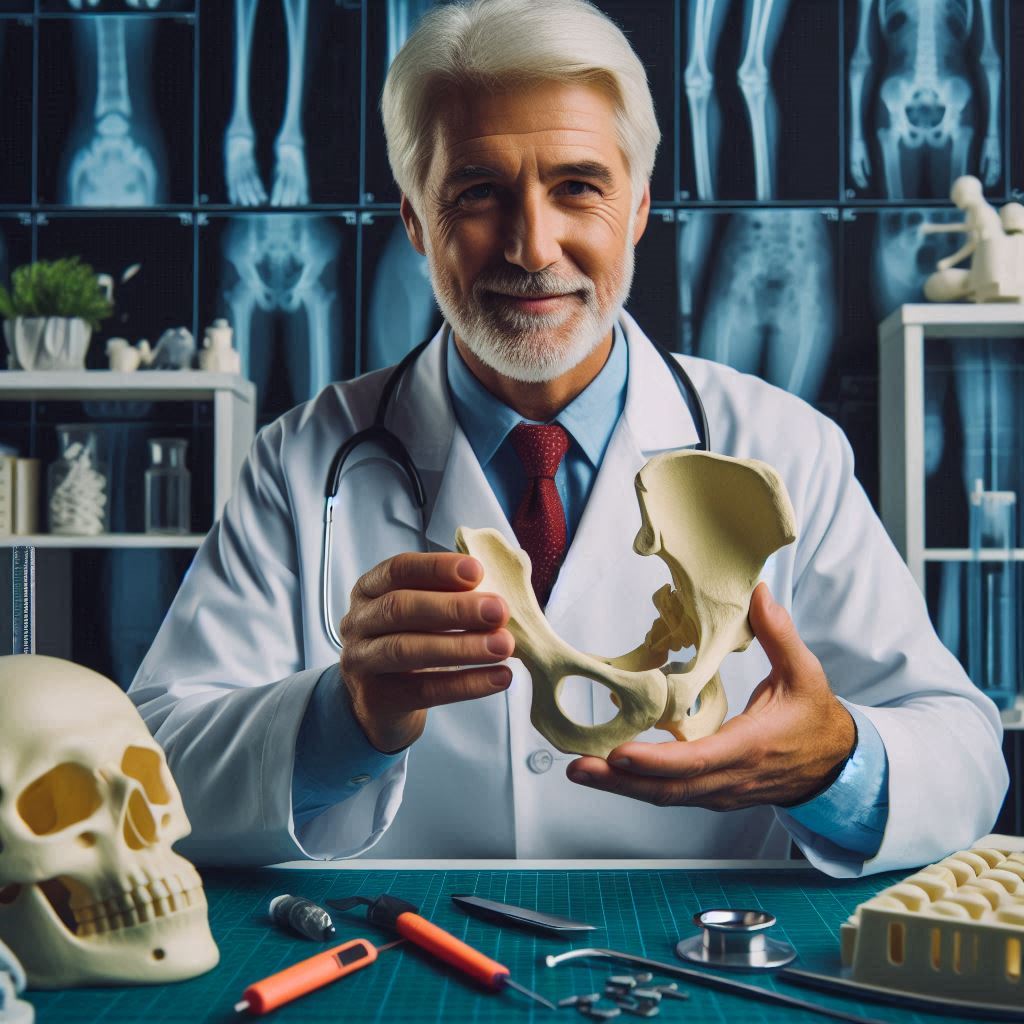Introduction
Understanding ethical principles is crucial for nuclear medicine techs. These principles guide decisions and actions in patient care.
Beneficence requires techs to act in the patient’s best interest. Non-maleficence demands they avoid causing harm.
Autonomy respects the patient’s right to make informed decisions. Justice ensures fair and equal treatment for all patients.
Adhering to these principles promotes trust and integrity in healthcare. They help techs navigate complex situations ethically.
Ethical principles foster a safe, respectful environment for patients. This introduction outlines the importance of ethical guidelines for nuclear medicine techs.
Their adherence enhances patient care and professional standards.
Importance
Building rapport with patients is crucial for nuclear medicine techs.
Establishing trust can improve patient experiences and outcomes.
Patients are more likely to comply with procedures when they feel comfortable.
Effective communication can ease anxiety and create a positive environment.
Significance of Building Rapport
- Patient interaction plays a key role in healthcare settings.
- Empathy and understanding can enhance the overall patient experience.
- Building rapport can lead to better cooperation and treatment adherence.
- Patients who feel heard are more likely to follow medical instructions.
Role of Nuclear Medicine Techs
- Nuclear medicine techs are essential in providing quality patient care.
- They interact directly with patients during diagnostic procedures.
- Techs can offer reassurance and support to anxious individuals.
- Their communication skills can impact patient satisfaction and treatment outcomes.
Read: Impact of Nuclear Medicine Techs in Healthcare
Communicating Effectively with Patients
Maintain good eye contact to show attentiveness and establish a connection with the patient.
Use clear and simple language to ensure patients understand medical jargon.
Ask open-ended questions to encourage patients to express their concerns and feelings.
Be mindful of your body language, gestures, and tone of voice during interactions.
Validate patients’ feelings and concerns to show empathy and create a supportive environment.
Providing Clear Instructions and Information about Procedures
- Explain the procedure in a step-by-step manner to help patients feel informed and prepared.
- Use visual aids or diagrams to enhance patients’ understanding of the upcoming procedure.
- Offer written instructions or pamphlets for patients to reference at home.
- Encourage patients to ask questions and clarify any doubts they may have about the procedure.
- Provide information on what to expect after the procedure to help alleviate any anxieties.
Listening Actively to Patient Concerns and Addressing Them Appropriately
- Practice active listening by making eye contact, nodding, and paraphrasing patients’ concerns.
- Show empathy and understanding towards patients’ fears, anxieties, and questions.
- Encourage patients to share their thoughts and feelings without interruption.
- Validate patients’ concerns and reassure them that their worries are acknowledged.
- Take the time to address each of the patient’s concerns and provide appropriate solutions or explanations.
Using Empathetic Communication to Create a Comfortable Environment for Patients
- Display empathy and compassion towards patients by acknowledging their emotions and experiences.
- Use a caring and compassionate tone to convey understanding and support.
- Offer a listening ear and be present in the moment during interactions with patients.
- Show genuine concern for patients’ well-being and comfort throughout the procedure.
- Foster a trusting and safe environment for patients to feel heard, respected, and cared for.
Demonstrating Professionalism in Patient Interactions
When it comes to interacting with patients in nuclear medicine, professionalism is key. Here are some essential tips:
- Always greet patients with a warm smile and friendly demeanor.
- Introduce yourself and explain the procedures clearly to the patient.
- Listen attentively to their questions and concerns, and address them with empathy.
- Ensure that the patient feels comfortable and informed throughout the process.
- Be respectful of their time and ensure minimal wait times for appointments.
Maintaining a positive attitude and demeanor during interactions
- Stay calm and composed, even in stressful situations.
- Avoid showing frustration or impatience, as it can make the patient anxious.
- Use positive language and reassurance to alleviate any fears or concerns.
- Focus on building trust and rapport with the patient throughout the interaction.
- Express gratitude for their cooperation and participation in the procedures.
Respecting patient privacy and boundaries
- Always ensure that the patient’s personal information is kept confidential.
- Respect their privacy by providing a comfortable environment for discussions.
- Use appropriate language and gestures to maintain professionalism and boundaries.
- Obtain consent before discussing any sensitive information or involving others in the conversation.
- Acknowledge and respect the patient’s autonomy and preferences at all times.
Upholding ethical standards and confidentiality in patient care
- Adhere to the ethical principles and guidelines of your profession at all times.
- Keep patient information secure and only share it with authorized individuals.
- Avoid discussing patient cases outside of the appropriate professional setting.
- Seek consent before using any patient-related information for educational purposes.
- Report any breaches of confidentiality or ethical misconduct to the relevant authorities.
By following these tips and guidelines, nuclear medicine techs can ensure that they provide the highest quality of care to their patients while maintaining professionalism, respect, and confidentiality in all interactions.
Read: Navigating Job Market as a Nuclear Medicine Technologist
Handling Difficult Patients with Patience and Sensitivity
When dealing with difficult patients, it’s crucial for nuclear medicine techs to approach the situation with patience and sensitivity.
Transform Your Career Today
Unlock a personalized career strategy that drives real results. Get tailored advice and a roadmap designed just for you.
Start NowSome patients may be anxious, scared, or agitated, which can affect their behavior during the imaging procedure.
It’s important to remember that the patient’s well-being and comfort are top priorities. Here are some tips for handling difficult patients:
- Remain calm and composed, even if the patient is being challenging.
- Listen actively to the patient’s concerns and validate their feelings.
- Use a gentle and reassuring tone of voice to communicate with the patient.
- Provide clear instructions and explanations about the procedure to alleviate any confusion or anxiety.
Recognizing signs of anxiety or distress in patients
As a nuclear medicine tech, it’s essential to be able to recognize signs of anxiety or distress in patients. Some common signs include:
- Rapid breathing or heartbeat
- Sweating or trembling
- Difficulty communicating or focusing
- Agitation or restlessness
By being observant and attentive to these cues, you can provide the necessary support and reassurance to help calm the patient’s nerves and make them feel more comfortable during the procedure.
Implementing de-escalation techniques to manage challenging situations
When faced with a challenging situation involving a difficult patient, it’s essential to know how to de-escalate the tension effectively.
Here are some de-escalation techniques to consider:
- Stay empathetic and understanding towards the patient’s emotions.
- Offer options or choices to empower the patient and help regain a sense of control.
- Redirect the conversation to focus on positive aspects or distractions.
- Involve a supervisor or another healthcare team member if needed for additional support.
Collaborating with healthcare team members to ensure patient safety and comfort
Collaboration with other healthcare team members is crucial in ensuring the safety and comfort of patients during nuclear medicine procedures.
As a nuclear medicine tech, it’s important to work together seamlessly with nurses, radiologists, and other staff to provide the best possible care.
Communication is key in coordinating efforts to address any challenges or concerns that may arise during patient interactions.
By collaborating effectively, healthcare team members can establish a supportive environment for patients, promote a positive experience, and ultimately contribute to better outcomes in nuclear medicine imaging.
Read: Ethical Considerations for Nuclear Medicine Techs

Building Trust and Establishing Relationships with Patients
Taking time to establish rapport and trust with patients is crucial in the field of nuclear medicine technology.
By demonstrating empathy and compassion in all interactions, you can create a positive and supportive environment for your patients.
Taking time to establish rapport and trust with patients
Here are some tips on how to build trust and establish relationships with patients:
- Listen actively: Take the time to listen to your patients’ concerns, questions, and fears.
Show them that you value their input and that you are there to support them throughout their treatment process. - Communicate effectively: Clearly explain procedures, potential risks, and expected outcomes to your patients in a way that is easy for them to understand.
Use simple language and avoid jargon to ensure that they are well-informed. - Show empathy: Put yourself in your patients’ shoes and try to understand their emotions and feelings.
Offer words of comfort and reassurance to alleviate their anxiety and make them feel more at ease. - Be patient: Some patients may be anxious or apprehensive about undergoing nuclear medicine procedures.
Take the time to address their concerns and answer any questions they may have, no matter how trivial they may seem.
Following up with patients to address any concerns or questions after procedures
After a nuclear medicine procedure, it is essential to follow up with patients to ensure that they are recovering well and to address any concerns or questions they may have.
This demonstrates your commitment to their well-being and helps strengthen the patient-technologist relationship.
Here are some key points to keep in mind when following up with patients after procedures:
- Provide clear instructions: Give patients detailed instructions on post-procedure care, including any medication they need to take, activity restrictions, and when to schedule a follow-up appointment.
This will help them feel confident in managing their recovery. - Address concerns promptly: If a patient contacts you with any concerns or questions after a procedure, make sure to respond promptly and reassure them that their well-being is your top priority.
Offer guidance and support to help alleviate their worries. - Offer support: Patients may experience anxiety or uncertainty following a nuclear medicine procedure.
Be available to offer emotional support, answer any lingering questions, and provide resources for additional information if needed.
Show them that they can trust you to guide them through the recovery process.
By taking the time to establish trust, show empathy, and follow up with patients after procedures, nuclear medicine technologists can create a positive and supportive environment that promotes patient well-being and satisfaction.
Building strong relationships with patients is essential for delivering high-quality care and ensuring positive outcomes in the field of nuclear medicine technology.
Read: Remote Medical Transcription Jobs: A Guide
Transform Your Career Today
Unlock a personalized career strategy that drives real results. Get tailored advice and a roadmap designed just for you.
Start NowEnhancing the Patient Experience through Personalized Care
When working as a nuclear medicine technologist, it’s crucial to prioritize patient interaction to enhance the overall experience.
Here are some tips on how to improve patient care through personalized interactions:
Tailoring Interactions to Meet Individual Patient Needs and Preferences
Every patient is unique, with different needs and preferences. Take the time to get to know each patient and tailor your interactions accordingly.
Some patients may prefer more detailed explanations, while others may appreciate a more concise approach.
By personalizing your interactions, you can ensure that each patient feels heard and valued.
Providing Emotional Support and Reassurance to Patients During Procedures
Medical procedures can be nerve-wracking for patients, especially in the case of nuclear medicine tests.
It’s essential to provide emotional support and reassurance to help ease their anxiety.
Take the time to explain the procedure in a clear and concise manner, and be empathetic to any fears or concerns they may have.
Your calm and reassuring presence can make a significant difference in their overall experience.
Going Above and Beyond to Ensure Patient Satisfaction and Comfort
As a nuclear medicine technologist, it’s important to go above and beyond to ensure patient satisfaction and comfort.
This could involve simple gestures like offering a warm blanket during the procedure, playing soothing music in the background, or checking in on the patient’s comfort throughout the process.
By taking these extra steps, you can make a lasting impression on your patients and help them feel more at ease.
Overall, personalized care is essential in nuclear medicine to create a positive patient experience.
By tailoring interactions to meet individual needs, providing emotional support, and going above and beyond to ensure satisfaction and comfort, you can make a significant impact on patient care.
Expanding Cultural Competence for Diverse Patient Populations
When working as a nuclear medicine technologist, it is crucial to have excellent patient interaction skills to provide the best care possible.
One essential aspect of patient interaction is cultural competence, which involves understanding and respecting the cultural differences of diverse patient populations.
In this section, we will discuss how nuclear medicine techs can expand their cultural competence to improve patient interactions.
Recognizing and Respecting Cultural Differences in Patient Interactions
Be open-minded and non-judgmental when interacting with patients from different cultural backgrounds.
Avoid making assumptions or stereotypes based on appearance or language.
Take the time to learn about the customs, traditions, and beliefs of diverse patient populations.
Transform Your Career Today
Unlock a personalized career strategy that drives real results. Get tailored advice and a roadmap designed just for you.
Start NowThis can help you better understand their perspective and provide more personalized care.
Respect patients’ privacy and autonomy by asking permission before proceeding with any procedures or treatments.
Be mindful of cultural practices that may influence a patient’s healthcare decisions.
Communicate clearly and effectively by using simple language and avoiding medical jargon when discussing treatment options or procedures.
Encourage patients to ask questions and seek clarification if needed.
Adapting Communication Styles and Practices to Meet the Needs of Diverse Patients
Use visual aids, such as diagrams or charts, to help explain complex medical concepts to patients who may have limited English proficiency.
This can enhance understanding and facilitate better communication.
Consider the impact of non-verbal communication, such as body language and facial expressions, when interacting with diverse patients.
Be aware of cultural differences in non-verbal cues and adjust your approach accordingly.
Collaborate with interpreters or cultural brokers when language barriers are present to ensure accurate communication.
Respect the patient’s preference for language assistance and involve trained professionals when needed.
Foster a welcoming and inclusive environment in the healthcare setting by displaying sensitivity to cultural diversity.
Encourage patients to share their perspectives and experiences to promote mutual understanding and trust.
Seeking Opportunities for Ongoing Education and Training in Cultural Competence
Stay informed about the latest research and guidelines related to cultural competence in healthcare to enhance your knowledge and skills.
Attend conferences, seminars, or workshops focused on cultural diversity in patient care.
Engage in self-reflection and self-awareness to identify any biases or preconceptions that may impact your interactions with diverse patients.
Seek feedback from colleagues or mentors to improve your cultural competence.
Participate in cultural immersion experiences or volunteer opportunities to gain firsthand exposure to different cultures and traditions.
This can deepen your understanding and appreciation for the diverse backgrounds of your patients.
Collaborate with interdisciplinary teams and cultural competence experts to develop strategies for improving patient interactions in a multicultural environment.
Transform Your Career Today
Unlock a personalized career strategy that drives real results. Get tailored advice and a roadmap designed just for you.
Start NowShare best practices and learn from others to enhance your cultural competence skills.
By expanding cultural competence, nuclear medicine technologists can build strong relationships with diverse patient populations and provide high-quality care that respects individual differences and promotes positive health outcomes.
Conclusion
Effective communication is crucial for nuclear medicine techs. Active listening shows empathy and understanding, building trust with patients.
Clear explanations reduce anxiety and improve patient cooperation. Maintaining eye contact and using positive body language enhance connections with patients.
Patient-centered care is essential in nuclear medicine. Focusing on patients’ needs and preferences improves their experience.
Respecting patients’ concerns and addressing them promptly fosters a supportive environment.
Personalizing interactions makes patients feel valued and respected.
Building positive relationships with patients leads to better outcomes. Trust and rapport improve patient compliance with procedures.
Patients are more likely to share important health information, aiding accurate diagnoses. Positive interactions reduce stress, benefiting both patients and techs.
Effective communication and patient-centered care are vital in nuclear medicine.
By prioritizing patient interaction, techs enhance patient experiences and outcomes.
Investing time and effort in building positive relationships is rewarding for both patients and techs.
Strive to make every patient feel heard, respected, and comfortable.
[E-Books for Sale]
The Big Book of 500 High-Paying Jobs in America: Unlock Your Earning Potential
$19.99 • 500 High-Paying Jobs • 330 pages
Explore 500 high-paying jobs in America and learn how to boost your career, earn more, and achieve success!
See All 500 High-Paying Jobs of this E-Book
1001 Professions Without a Degree: High-Paying American Jobs You Can Start Now
$19.99 • 1001 Professions Without a Degree • 174 pages
Discover 1001 high-paying jobs without a degree! Unlock career tips, skills, and success strategies for just $19.99!




